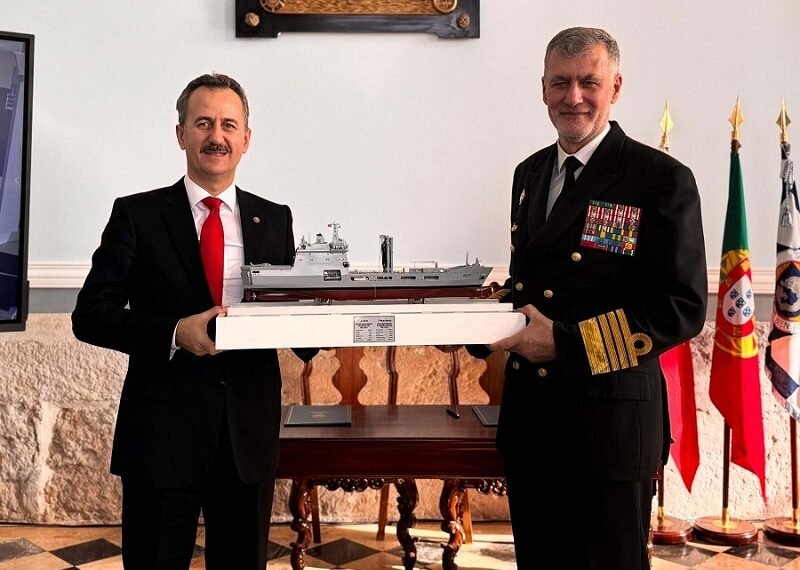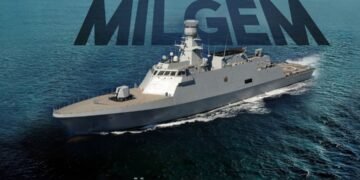STM to Build Two Logistic Support Vessels for the Portuguese Navy
STM, Türkiye’s national engineering powerhouse, has outperformed the world’s leading military maritime companies by winning the Portuguese Navy‘s Logistic Support Vessel tender. This project is of great importance in terms of Türkiye’s export of military vessels to a European Union (EU) and NATO member country for the first time.
The agreement was formally signed in Lisbon on 17 December 2024 in a ceremony hosted by Admiral Henrique Eduardo Passaláqua de Gouveia e Melo, Commander of the Portuguese Navy. Representing Türkiye, Prof. Dr. Haluk Görgün, President of Defence Industries, and Özgür Güleryüz, General Manager of STM, took part in the ceremony.
During his speech at the ceremony, Prof. Dr. Haluk Görgün, President of Defence Industries, stated:
‘Türkiye is among the 10 countries in the world that produce their own warships. This project, which we signed for the Portuguese Navy, is the first defence procurement agreement between the two countries. We aim to expand this cooperation in areas such as unmanned systems, electronic warfare and naval modernisation.
Özgür Güleryüz, General Manager of STM, provided the following insights on the project’s specifics:’Our unique and modular design is tailored to meet the operational requirements of the Portuguese Navy, offering both high speed and substantial carrying capacity. We will start the construction of the vessels in 2025.’
Technical Specifications of Logistic Support Vessels
The main features of the logistic support vessels to be built in Türkiye by STM will be as follows
Length: 137 metres
Displacement: 11,000 tonnes
Maximum Speed 18+ knots
Duration of Service 90 days uninterrupted sea time
Staff Capacity: 100 duty personnel + 100 additional persons
Carrying Capacity: 20 light tactical armoured vehicles
The vessels will be equipped with air defence systems, remote-controlled weapon systems and advanced sensors. They will also have a helicopter platform and UAV hangar.
Multi-Purpose Use Capacity
In addition to providing logistic support at sea, the vessels will also play a strategic role in missions such as humanitarian aid, search and rescue and hospital services in times of crisis. Thanks to its modular structure, it will be able to be used actively in operations such as amphibious operations and power transfer.
This project is a testament to Türkiye’s growing global influence and the engineering prowess of its defence industry on the international stage. This is Türkiye’s first export of a naval vessel to a NATO and EU member country, and is a significant step in the country’s ongoing rise in the defence industry.










